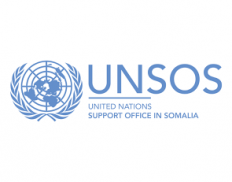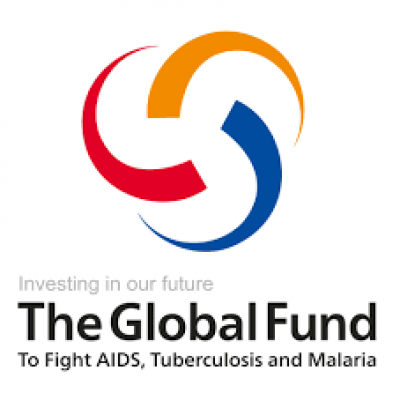Details
Description
The United Nations Capital Development Fund (UNCDF) makes public and private finance work for the poor in the world’s 46 least developed countries. With its capital mandate and instruments, UNCDF offers “last mile” finance models that unlock public and private resources, especially at the domestic level, to reduce poverty and support local economic development.
The Local Climate Adaptive Living Facility (LoCAL) is a mechanism to integrate climate change into local authorities’ planning and budgeting through the regular intergovernmental fiscal transfer system using performance-based grants in a participatory and gender sensitive manner, increase awareness and capacities to respond to climate change at the local level including through ecosystem-based solutions, and increase the quality and number of local investments that address climate change. LoCAL combines performance-based climate resilience grants (PBCRGs), which ensure programming and verification of change expenditures at the local level, with technical and capacity-building support. It uses the grants and demonstration effect to trigger further flows for local climate action including global climate finance and national fiscal transfers. LoCAL also aims to support private finance for small and medium businesses and municipal finance and public-private partnerships. LoCAL is currently active in 17 countries in Africa, Asia and the Pacific, with another 17 countries preparing to join (at the design stage).
UNCDF has supported the Government of Somalia (GoS) design the LoCAL-Somalia Mechanism with aims of increasing local government access to climate finance for implementation of Nationally Determined Contributions (NDCs) and National Adaptation Plans (NAP)-aligned change adaptation priority investments in Somalia (outcome 1); and will consolidate a standard and internationally recognized country-based mechanism of performance-based climate resilience grants in the country, further attracting climate finance, domestic and international (outcome 2). LoCAL aims to raise awareness and strengthen capacities for subnational climate change adaptation at subnational level (output1); support the integration of climate change into local planning and budgeting processes and finance local adaptation interventions and investments in NDC and NAP-aligned adaptation sectors (output 2) and deploy at scale across the country an effective performance-based climate resilience grant system (financing mechanism) that can attract various sources of climate finance (output 3).
Within this programme context, UNCDF is seeking a Project Specialist, NPSA to contribute to the effective delivery of the Programme’s activities in Somalia.
2. Scope of Work:
The Project Specialist will provide policy, regulatory and technical advice to the national and subnational counterparts in relation to the LoCAL programme activities, and with a focus on the integration of climate change and environmental sustainability into public planning and budgeting systems at sub-national level.
The Project Specialist will also be responsible for providing technical, policy, and programming implementation support and oversight, and knowledge and capacity development services for the effective deployment of LoCAL programmatic activities, for providing operational support to the LoCAL Facility, and is also expected to contribute to LoCAL’s resource mobilization activities on an ongoing basis.
Summary of key functions:
1. National Programme management and implementation
2. Policy outreach, partnership building and resource mobilization
3. Policy, regulatory and technical advice to government counterparts and key stakeholders
4. Coordination with government counterparts, UN system and development partners
5. Knowledge management and communication
1-National Programme management and implementation
- Oversee the day-to-day implementation of selected LoCAL activities, with a focus on climate change and environmental sustainability, ensuring UNCDF/LoCAL standards are applied consistently;
- Lead delivery and achievement of objectives by working with and supporting implementing partners’ project related activities;
- Ensure the integrity of national LoCAL Annual Work Plan, budget, financial resources, review of budget requirements, delivery and the consistent application or rules and regulations;
- Provide effective national programme and project design, supervision, implementation, monitoring and evaluation, reporting and completion of assigned LoCAL activities, in close collaboration with UNDP, UNRCO, the LoCAL Facility Manager and the LoCAL Facility (global);
- Contribute to the management of the risk log of the project;
- Support identification and sourcing of technical expertise and support, including assisting with the preparation of TORs, identification and evaluation of experts and reviewing reports;
- Contribute to the preparation and timely submission of comprehensive and quality technical and financial reports in line with contractual agreements, including semi-annual reporting;
- Ensuring the timely and effective management of the activities as scheduled.
2-Policy outreach, partnership building and resource mobilization
- Develop strategies to mobilize additional resources based on national programme requirements and new opportunities.
- Maintain close working relationships with key national and subnational institutions and other key stakeholders at various levels in order to support the quality of the execution of the PBCRGS and its key results areas;
- Support negotiations on co-operation with UNDP, the UN system, Government, bilateral development agencies, and other technical partners to identify and develop synergies with relevant in-country projects and technical partnerships for LoCAL with a focus on policy and capacity development for climate change mainstreaming and climate finance;
- Build effective and efficient partnerships at the operational level with national counterparts and financial and technical partners;
- Organize consultative meetings, seminars, workshops to drive analytical, and policy work of the Programme.
3-Policy, regulatory and technical advice to government counterparts and key stakeholders
- Ensure adequate provision of technical, policy and regulatory assistance and advice to national and subnational governments in the field of public financial management, good governance, decentralization, adaptation planning/programming, climate finance, climate change issues and environmental sustainability, climate change mainstreaming into planning, budgeting, investment plans, implementation, and monitoring of adaptation measures (performance assessments);
- Provide technical advice and capacity building support (“learning by doing”) for the piloting and establishment of a local information system for adaptation and of a climate risk assessments for subnational adaptation (including projections and mapping) addressing hazards, vulnerabilities and exposure of local governments in relation to climate change including desk review, data collection, preliminary design of the system, analytical writing, piloting, consultation and validation and gradual deployment of the local climate information system;
- Support the strengthening of capacities, institutions and systems with a focus on local level adaptation mainstreaming and the strengthening of public financial management systems for climate change (e.g. by facilitating and undertaking capacity needs assessments; the development of capacity building programmes; the organization of training workshops; and on-the-job learning);
- Strengthen the quality of the monitoring and evaluation and reporting of LoCAL in line with UNCDF standards, as well as with the ‘Assessing Climate Change Adaptation Framework’ (e.g. preparation and monitoring of the annual work plan, organization and participation in M&E field missions, proposing corrective measures, contribution to the preparation of annual reports);
- Provide technical advice and capacity building support (“learning by doing”) for the integration of environment and climate change issues in the local government development and investment plans and budgets that foster job creation, gender equality and green and climate resilient local economies;
- Provide technical advice and capacity building support for the adequate integration and costing of environment and climate considerations (e.g. specifications, cost estimations, etc) in the investments delivered in the context of the national Programme;
- Lead the technical dialogue and provision of policy and technical advisory services to national and local government counterparts in relation to climate change information and assessments, climate mainstreaming, climate finance and (direct) access to international climate finance (e.g. through development of concept notes and funding proposals)
4- Coordination with government counterparts, UN system and development partners
- Serve as the UNCDF focal point in working groups and steering committees on the issue of environment and climate change and related sectors and provide inputs for conducive policy and regulatory environment;
- Manage UNCDF’s commitments within the UNDAF Results Matrix, ensures effective application of results -based management tools, monitors initiative work plans, programme effectiveness and achievement of results.
- Coordinates and provides substantive contributions from UNCDF on LoCAL mechanism in the CCA and UN Sustainable Development Cooperation Framework (UNSDCF), promotes thematic and sectoral synergies and coordination of programme activities and execution with development partners in Somalia and any other assigned LoCAL country in the region;
- Coordinate closely with development partners and UNRCO on LoCAL development and delivery, identifies approaches and modalities to achieve development targets by ensuring synergies and coordination between UNCDF LoCAL global programme and development partners in Somalia (or any other assigned LoCAL country), as well as provide technical, policy and programmatic advice to the UNRCO on relevant themes.
5- Knowledge management and communication
- Identify key knowledge constraints and organize learning, knowledge exchange, training, workshops, etc. to build the awareness and capacities on relevant themes (i.e. climate change, local climate risk assessments, environmental sustainability, mainstreaming, in support of women and youth employment, etc.);
- Contribute to the implementation of the Communication and Visibility Plan of the Programme, in collaboration with Programme team, partners and technical consultants;
- Identify, collect and disseminate best practices and lesson learned from the Programme in areas of specialty;
- Manage the process of convening national and regional stakeholders to share lessons learned on selected themes.
Additional information on LoCAL can be found here https://www.uncdf.org/local/homepage
3. Institutional Arrangement:
The Project Specialist reports to the regional Programme Management Specialist, in the interim filled by LoCAL Global Programme Manager, P-5, based in Kampala, Uganda, and works in close collaboration with other LTF and LoCAL colleagues in the regional office/HQ based and country and across the region. This position will be based in Mogadishu, Somalia.
4. Competencies:
| Core | |
| Achieve Results: | LEVEL 3: Set and align challenging, achievable objectives for multiple projects, have lasting impact |
| Think Innovatively: | LEVEL 3: Proactively mitigate potential risks, develop new ideas to solve complex problems |
| Learn Continuously: | LEVEL 3: Create and act on opportunities to expand horizons, diversify experiences |
| Adapt with Agility: | LEVEL 3: Proactively initiate and champion change, manage multiple competing demands |
| Act with Determination: | LEVEL 3: Think beyond immediate task/barriers and take action to achieve greater results |
| Engage and Partner: | LEVEL 3: Political savvy, navigate complex landscape, champion inter-agency collaboration |
| Enable Diversity and Inclusion: | LEVEL 3: Appreciate benefits of diverse workforce and champion inclusivity |
| Cross-Functional & Technical competencies (insert up to 7 competencies) |
| Thematic Area | Name | Definition |
| Business Direction & Strategy | Systems Thinking | Ability to use objective problem analysis and judgement to understand how interrelated elements coexist within an overall process or system, and to consider how altering one element can impact on other parts of the system |
| Business Management | Portfolio Management | Ability to select, prioritize and control the organization’s programmes and projects, in line with its strategic objectives and capacity; ability to balance the implementation of change initiatives and the maintenance of business-as-usual, while optimizing return on investment |
| Business Management | Communication | Ability to communicate in a clear, concise and unambiguous manner both through written and verbal communication; to tailor messages and choose communication methods depending on the audience Ability to manage communications internally and externally, through media, social media and other appropriate channels |
| Partnership Management | Multi-stakeholder engagement and funding | Knowledge and ability to forge multi-stakeholder partnerships, and remove any obstacles to resource mobilization and multi-stakeholder funding platforms |
| Partnership Management | Strategic engagement | Ability to capture and sustain attention, interest and agreement of high-level, influential policy and decision makers and secure their buy-in of high-level vision and objective |
| 2030 Agenda: Planet | Disaster Risk Reduction and Recovery | Climate Risk Management Disaster and Climate Risk Governance |
| 2030 Agenda: Planet | Nature, Climate and Energy | Climate Change Policies: Governance / integrated planning for climate change investments in the context of urbanization |
5. Minimum Qualifications of the Successful NPSA
| Min. Education requirements |
|
| Min. years of relevant work experience |
|
| Required skills |
|
| Desired skills in addition to the competencies covered in the Competencies section |
|
| Required Language(s) |
|
| Professional Certificates | N/A |
6. The following documents shall be required from the applicants:
- Personal CV or P11, indicating all past positions held and their main underlying functions, their durations (month/year), the qualifications, as well as the contact details (email and telephone number) of the Candidate, and at least three (3) the most recent professional references of previous supervisors. References may also include peers.
- A cover letter (maximum length: 1 page) indicating why the candidate considers him-/herself to be suitable for the position.
- Managers may ask (ad hoc) for any other materials relevant to pre-assessing the relevance of their experience, such as reports, presentations, publications, campaigns or other materials.




